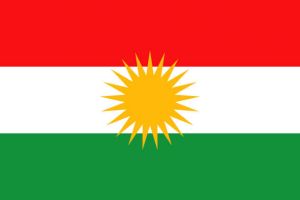Language/Southern-kurdish/Grammar/Plurals
Hi Southern Kurdish learners! 😊
In this lesson, we will explore plurals in the Southern Kurdish language. Just like in English, plurals refer to more than one thing, whether it is a person, animal, or object. Knowing how to form plurals correctly will improve your language skills and communication in Southern Kurdish. So, let's get started!
Don't miss the chance to check out these pages as you wrap up this lesson: Conditional Mood, Adjectives & Negation.
What are plurals?[edit | edit source]
In grammar, the term "plural" refers to a form of a word that refers to more than one person, animal, or thing. In phrases and sentences, we use plural forms when we are talking about more than one object or person. For example: "I have one book" (singular) becomes "I have two books" (plural). In Southern Kurdish, there are a few different ways to form the plural. We will cover each one in this lesson.
Adding -an to nouns[edit | edit source]
The most common way to form plurals in Southern Kurdish is by adding "-an" to the end of the singular noun. This is similar to adding "-s" in English, as in the word "books".
| Southern Kurdish | Pronunciation | English |
|---|---|---|
| خانه (xane) | xanɛ | house |
| خانهها (xanehân) | xanɛhɑːn | houses |
| کتێب (ketêb) | kɛtɛb | book |
| کتێبەکان (ketêbekan) | kɛtɛbɛkɑːn | books |
| سواری (suwari) | suwɑri | car |
| سوارییان (suwariyan) | suwɑrijɑːn | cars |
Adding -ên to singular nouns ending in a vowel[edit | edit source]
For singular nouns ending in a vowel, we add "-ên" instead of "-an". This helps to avoid a double vowel sound.
| Southern Kurdish | Pronunciation | English |
|---|---|---|
| بابەتی (babêti) | babɛti | topic |
| بابەتییەکان (babêtiyekan) | babɛtiːjɛkɑːn | topics |
| کچ (keç) | kɛtʃ | girl |
| کچێکان (keçekan) | kɛtʃeːkɑːn | girls |
Changing the vowel at the end of the word[edit | edit source]
Sometimes, to form a plural, we change the vowel at the end of the singular noun. Here are some examples:
| Southern Kurdish | Pronunciation | English |
|---|---|---|
| مرۆڤ (marov) | mɑroʋ | snake |
| مڕۆڤەکان (mrova̤kan) | mrɤva̤kɑːn | snakes |
| فرۆش (frosh) | froʃ | seller |
| فڕۆشەکان (frɤʃɛkɑːn) | frɤroʃɛkɑːn | sellers |
Irregular plurals[edit | edit source]
Some words in Southern Kurdish have irregular plurals that do not follow any of these patterns. These words must be memorized. Here are some examples:
| Southern Kurdish | Pronunciation | English |
|---|---|---|
| بۆر (bor) | bor | sheep |
| بایەش (ba̤yeʃ) | bɑjːɛʃ | fish |
| نار (na̤r) | nar | fire |
| فیل (fil) | fil | elephant |
Plural in context[edit | edit source]
- Person 1: ئەو کتێبیە دەخرێت؟ (ew ketebye dexreyte? - Did you buy that book?)
- Person 2: نە، ئەنجام دەدەین بۆمەو کتێبەکانی تەنهاقەکان. (ne, anjɑːm dɛdɛjn bome w kete̤bekani tanhaqa̤kan - No, we're going to buy all the books from that series.)
Southern Kurdish Language and Grammar[edit | edit source]
To improve your Southern Kurdish Grammar, you can also use the Polyglot Club website. Find native speakers and ask them any questions!

